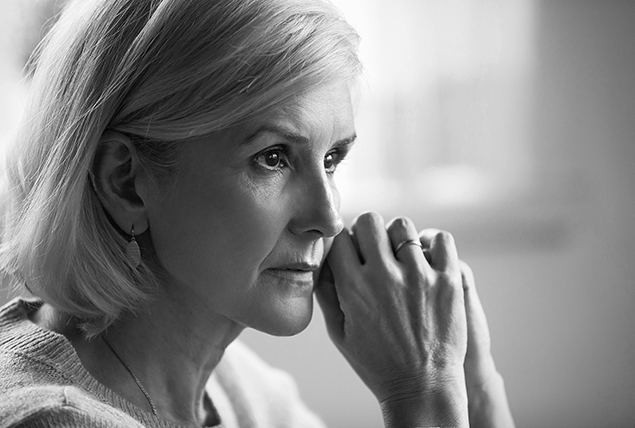Study Reveals Many Women Think Negatively About Menopause

Menopause, maybe not surprisingly, received mostly negative reviews in a recent survey of more than 1,200 middle-aged women. The survey found most women describe menopause, the natural stage of life that signifies the end of a woman's reproductive years, negatively.
The results may not come as much of a shock considering the common symptoms of menopause—hot flashes, chills, night sweats, irregular periods, vaginal dryness, sleep problems, mood changes and weight gain—are not very glamorous.
Getting the information out there
In an effort to raise awareness and reduce the stigma associated with the midlife phase, Ireland's Department of Health released data in December 2022 gathered during the country's first menopause awareness campaign.
"The campaign is a direct response to the demand from Irish women for greater knowledge and understanding of menopause, as well as better access to accurate information and supports so that they can proactively manage their experience," the government said in a news release.
"While menopause affects half our population directly, all of us know someone going through it, be it a family member, a friend or a colleague," Health Minister Stephen Donnelly stated in the release. "This campaign and website will empower everyone to open up the conversation around menopause and to eradicate any stigma or secrecy that's associated with it."
The results
Ireland's Department of Health canvassed 1,290 adults' experiences with perimenopause and menopause and found 55 percent of women going through one of the two stages described the stage of life negatively, while 22 percent said it was a positive experience.
The findings have wide implications. Perimenopause, the stage during which a woman's body starts to prepare for menopause, can begin as young as age 30 for some women. One-third of Irish women ages 35 and older said they are currently going through perimenopause or menopause.
Women reported that they experience seven menopausal symptoms at any given time, on average. Their most intense menopausal symptoms were temperature changes (76 percent), changes in periods (73 percent), tiredness (72 percent), sleep issues (68 percent), changes in body shape (58 percent), cognitive issues (56 percent), mood changes (54 percent) and joint pain (53 percent), according to the Irish study.
"Also, the research showed if a woman experiences a symptom frequently, she is very likely to say it has a severe impact on her quality of life," the release stated.
The Irish government said survey respondents offered the following advice to other women: Talk to your general practitioner, get information and advice, get as much help as you can, stay positive and be kind to yourself.
Given menopause's place as part of the natural aging process, there is no comprehensive cure for it. Certain vitamins and minerals have been shown to help improve side effects, and many women may benefit from supplements. Giddy Menopause Support vitamins are specially formulated to support the body with hormone-balancing supplements, like Panax ginseng, ashwagandha and diindolylmethane, to help maintain a healthy hormonal balance.


















